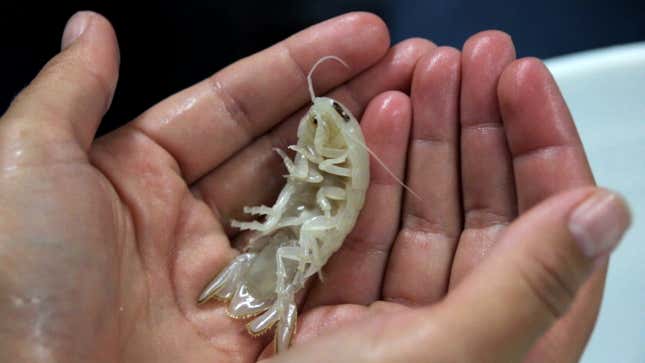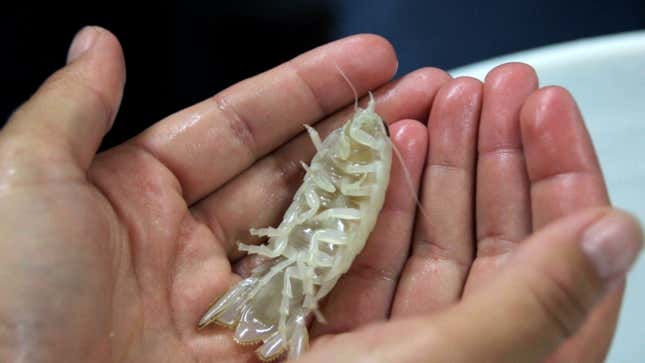Meet the animal kingdom’s newest little guy. This is Booralana nickorum, a recently described species of deep-sea isopod found in The Bahamas. It is a cirolanid isopod—a member of the family Cirolanidae—and is only the second species of its genus described from the Western North Atlantic.
Deep-sea isopods are cousins of terrestrial roly-polies, also known as pill bugs. The newly described pinky-length crustacean was found on a slope of Exuma Sound, southeast of Nassau, at a depth of about 1,800 feet (548 meters). A paper describing the species was published recently in Zootaxa.
Advertisement

Advertisement
“Seagrass, mangroves, all that sort of stuff gets swept off the shelves and basically dumped right down into this deep-sea community,” said study author Oliver Shipley, an ecologist at Stony Brook University, in a video call with Gizmodo. “And that’s really important, because the more energy there is, the better the chances are that there are higher levels of biodiversity down there as well.”
Advertisement
Enter (on all pleopods) the new isopod, recovered on dives undertaken by the Cape Eleuthera Institute and OceanX in 2019. The species is much smaller than the largest isopod, the giant isopod (B. giganteus), which can grow to be over a foot (30.5 centimeters) long. B. nickorum is 2.17 inches (5.5 centimeters) long.
Though the team did not undertake a genetic analysis, they determined it was a unique species by scrutinizing minutiae of its physical characteristics. The species likely feeds on the detritus that falls down the slope in the Exuma Sound; at such depths, the habitat becomes a kitchen sink, catching all the organic matter that trickles deeper into the ocean.
Advertisement

“Caribbean deep sea ecosystems are really, really, really poorly studied,” Shipley said. “The potential for novel discovery is massive.”
Advertisement
Indeed, the deep sea is filled with hidden life, from coral reefs in the Galápagos to deep-sea octopus nurseries off the coast of Costa Rica. The pockets of biodiversity are there, lying in the darkness—the question is whether they can remain pristine as human activity encroaches.
More: 90% of Species in an Area Slated for Deep-Sea Mining Might Be Unknown to Science
Services Marketplace – Listings, Bookings & Reviews